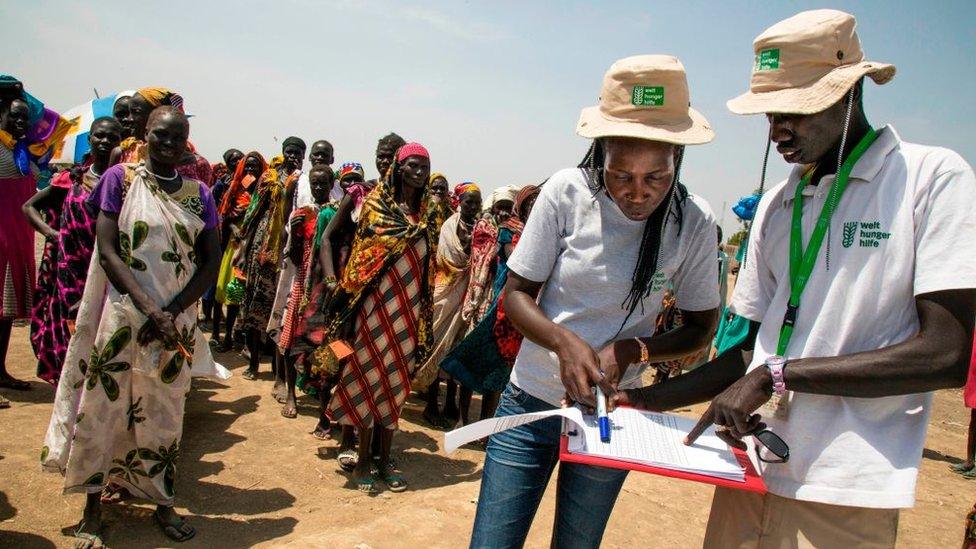The face of hunger
- Published
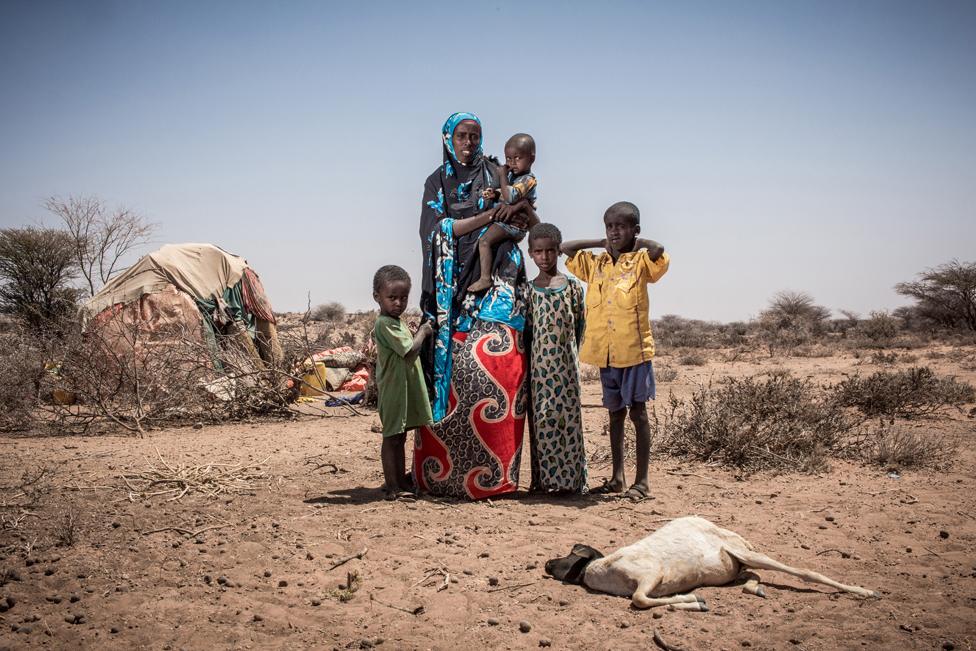
Photographer Mustafa Saeed spent eight days travelling across in Somalia's self-declared republic of Somaliland with charity Save the Children, meeting pastoralist families whose lives have been ruined by drought.
Thousands of children are malnourished, families have lost their livelihoods, and fathers are absent as they travel to sell what cattle they have left.
Sixteen million people across Somalia (including Somaliland), Kenya, Ethiopia and South Sudan need food, water and medical treatment, according to the UK's Disasters and Emergency Committee.
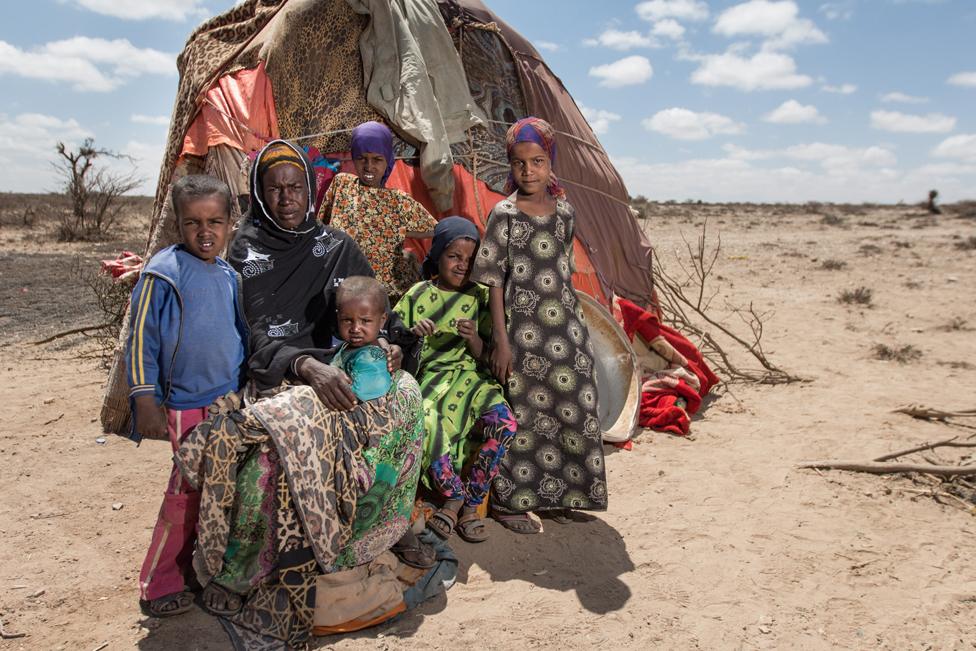
"These pastoralist families are representative of the many Somali families across the Horn of Africa who are affected by this drought," says Saeed.
"Their livestock is their bank account - it is the currency that they depend on to live, and they have been watching their animals die.
"They are still waiting for help, telling me about their needs for food, water, and shelter.
"It was an emotionally exhausting experience, especially seeing the scale of the situation and knowing there are so many people out there who need our help.
"But whatever difficulties I faced when taking these photos, I know it is nothing when compared to the emotional state of these families who are suffering from the drought."

Shukri
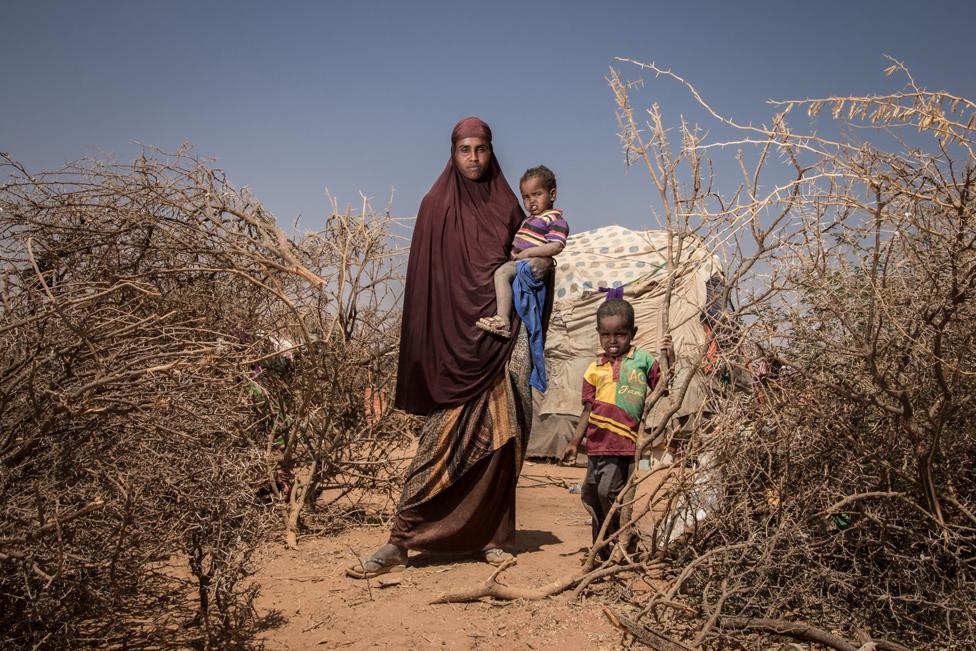
After most of her livestock died, Shukri came, with two of her three children, to Burao and settled in the area surrounding the local airport in the hope that her few surviving sheep could find pasture.
"We came here hoping to feed our livestock," she says, "But the grass was finished and our livestock died. Now, we have to remain here. We have nothing left."

Fardus
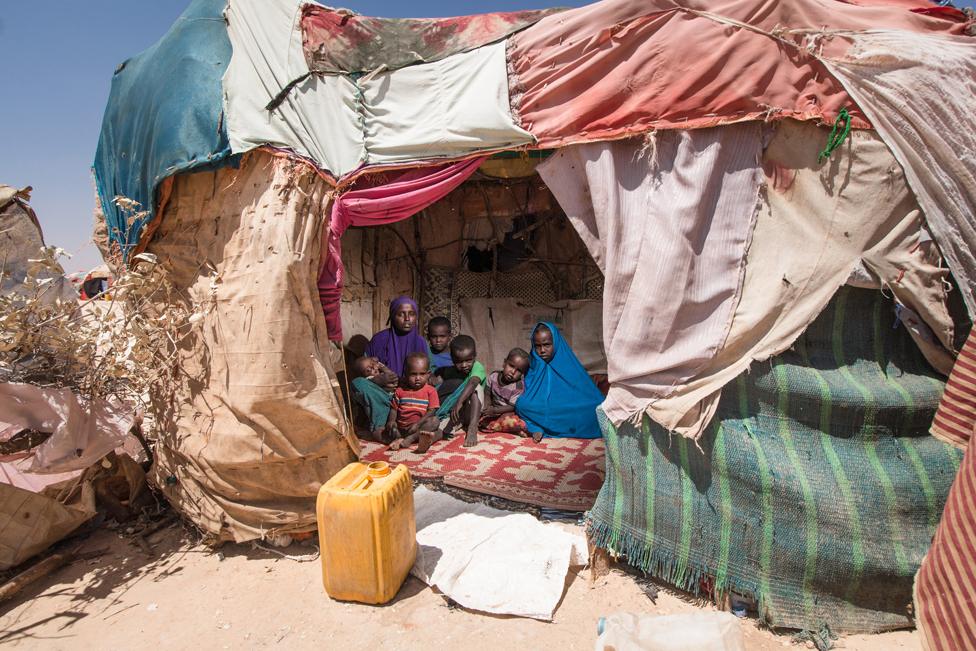
Many pastoralists are abandoning their nomadic lives as herders and making their way to small urban centres such as Ainabo, hoping to receive food aid from the local communities and international organisations.
Fardus says: "After our livestock died, we were left with nothing to eat, We have no food, no water, and no proper shelter. We have nothing. I came here so that my children might have something to eat."

Saado
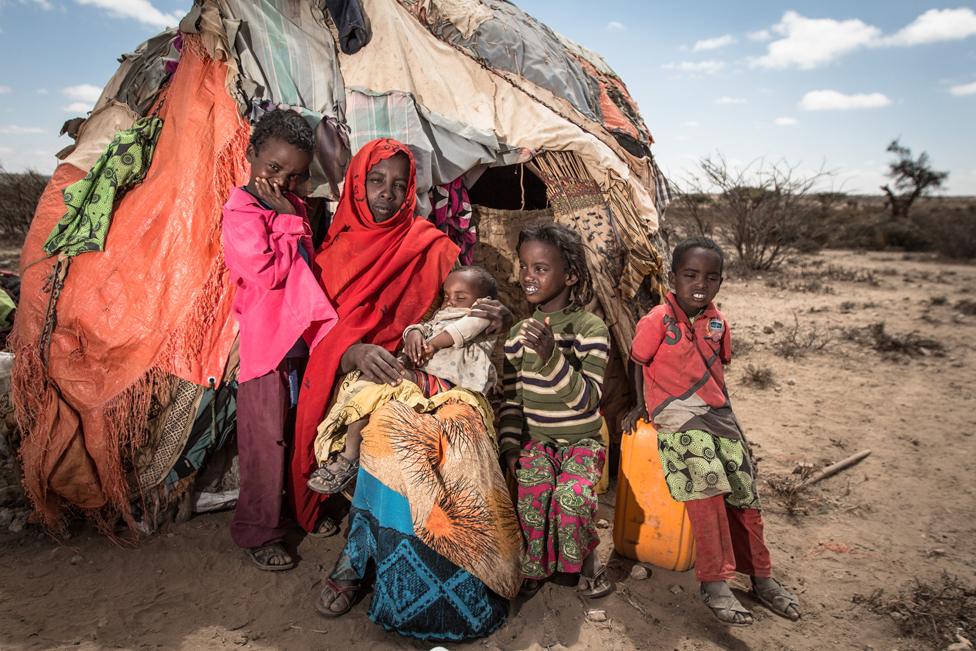
Saado travelled from the drought-stricken eastern region of Somaliland, after a 100 of her livestock died, and settled with her four children in the west of the country, near the town of Dilla. More of her livestock died here, and her remaining 50 sheep and goats are too weak to produce milk or to sell at the market.
Saado and her children are eating one meal of rice per day. Her youngest daughter has been diagnosed with malnutrition at a recent health screening.
"Our biggest need now is food," says Saado. "We need to get food so that my children can get stronger."

Khadra Mohamed
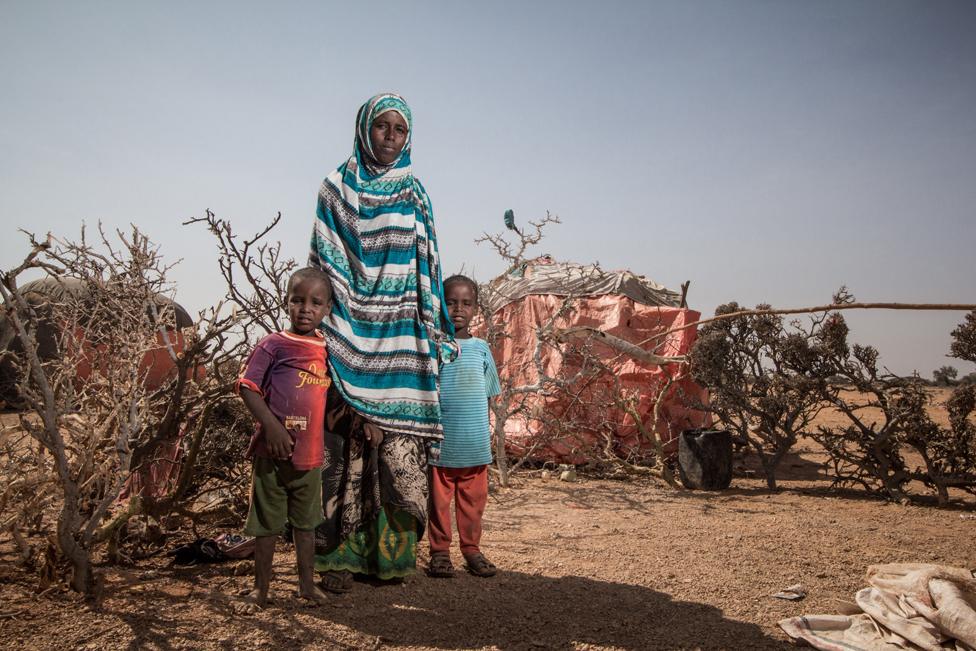
"We used to be pastoralists and then the drought happened and we lost all but a few of our livestock, so we came here," says Khadra.
"Everyone here who has lost their livestock has been through a lot. We have no homes, just these makeshift tents. Some of the local shops have lent us food, and recently some organisations have been helping us."

Deeqa
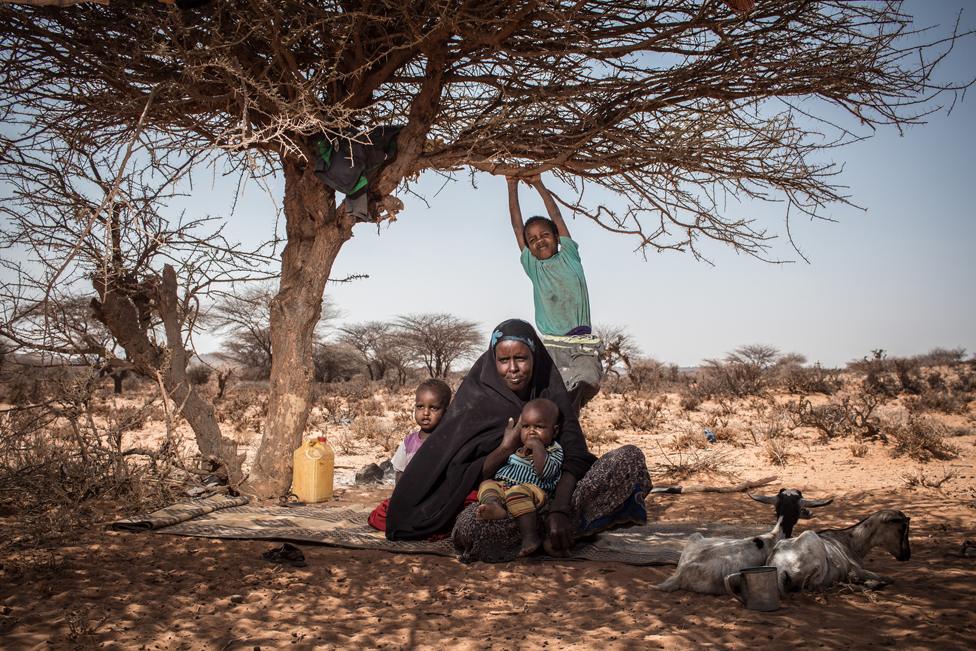
Deeqa's family has lost a 100 head of cattle, and the few surviving livestock are too weak to be of value.
"The drought has put our family in a difficult situation. We don't have access to clean water," she says, "and as a mother, I don't even have enough food to feed my children."

Indhodeeq
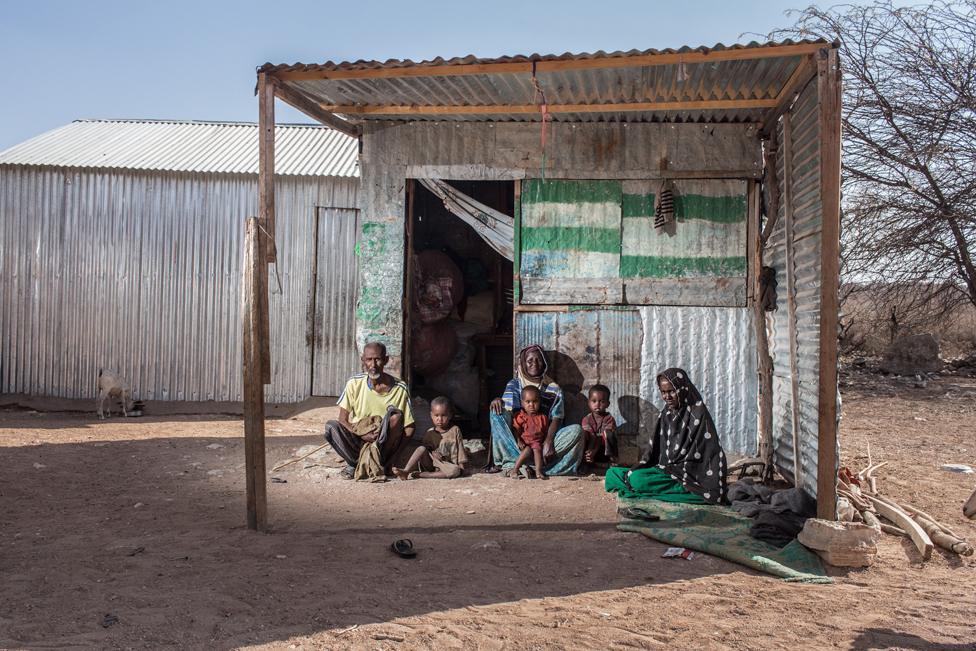
After losing a number of their animals to the drought, Indhodeeq and her family abandoned their life as rural herders and sought refuge in the town of Kiridh. They were given this small shed to live in by people in the town.
"Our immediate needs are food and water and a proper shelter for the children to live in," she says.
Indhodeeq received a cash transfer from Save the Children, which she used to buy food, milk and medicine for the family.
She is pictured here with one of her granddaughters on her lap, her husband, Noor, who is blind, and her daughter Hodan, who recently fell ill after giving birth.

Hodan
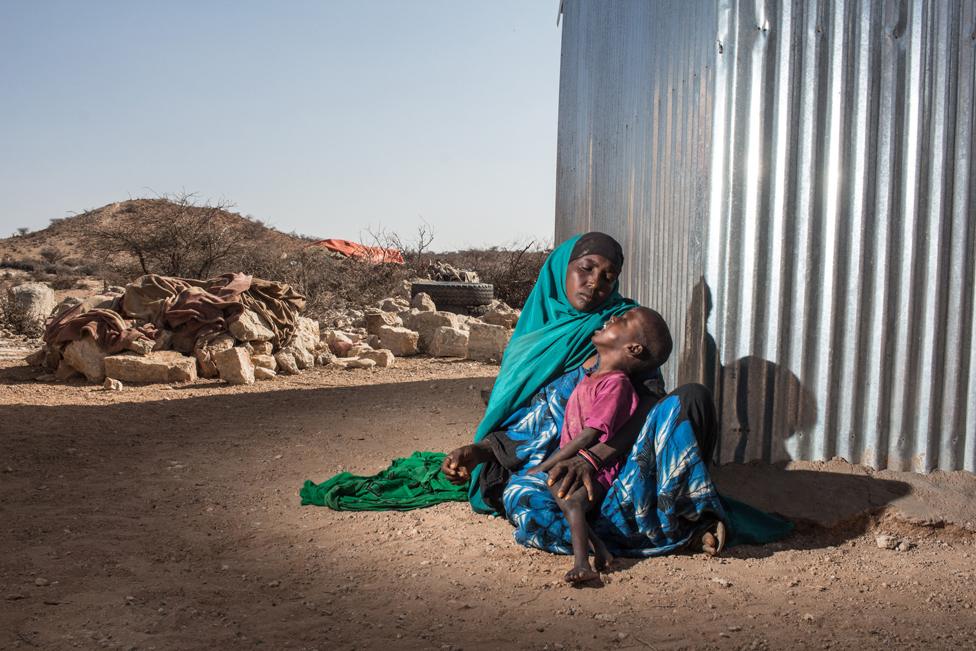
Hodan, a mother of five, holds her two-year-old son, Harun, in the town of Kiridh. Harun went blind following a bout of illness as an infant, and he is now suffering from severe malnutrition. The nearest hospital is several hours away, and Hodan, who has lost over half of her cattle, is struggling to feed her children and get treatment for Harun.

Ubah
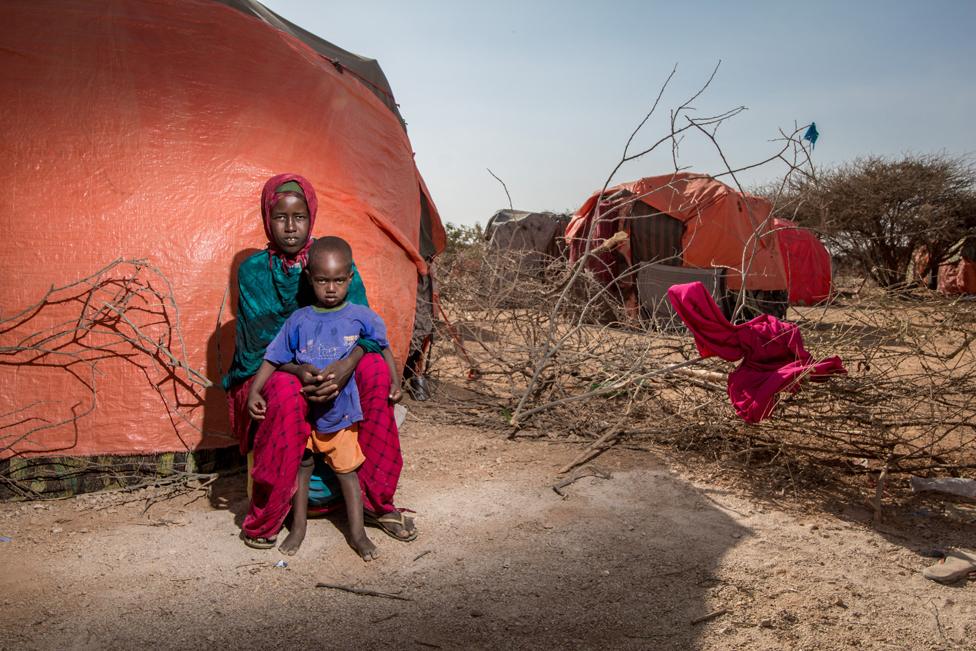
Ubah has received an initial distribution of food aid but still struggles without a proper shelter and a lack of clean water.
She says: "We lost all of our goats and most of our camels. My husband has taken the surviving camels to market. When we lost our livestock our life became very harsh, so we came here hoping we will be registered by the aid organisations."

Fadumo
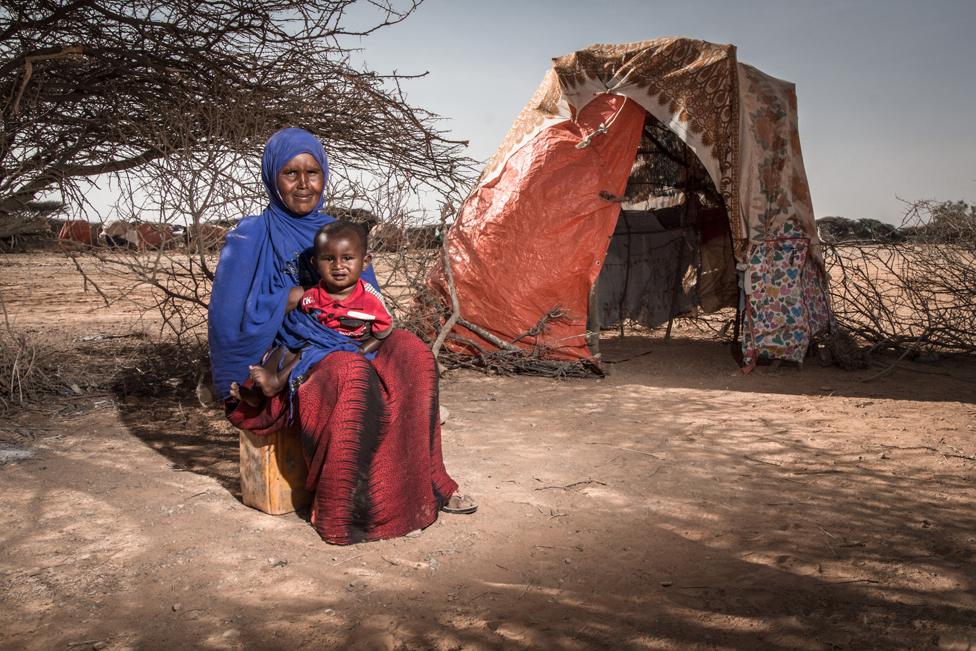
After she was divorced from her husband, Fadumo travelled with her three children to an informal settlement outside of Yogoori. Her one-year-old son, Kulmiye, has been diagnosed with malnutrition, and she was recently registered for a cash transfer programme by Save the Children.
"I have no livestock, no money, no shelter. I need help for my children," she says.
All photographs by Mustafa Saeed
- Published15 March 2017
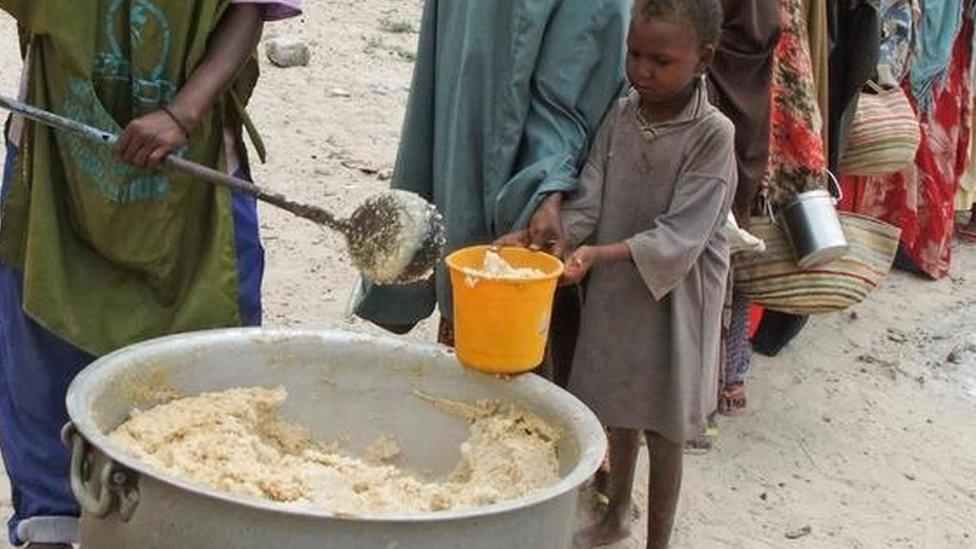
- Published13 March 2017
